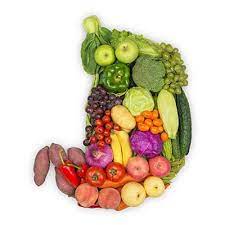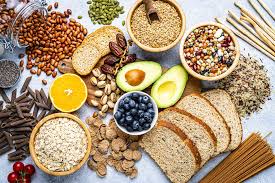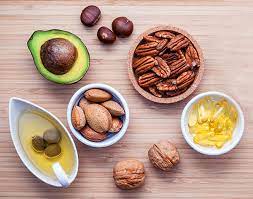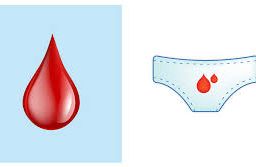
Gut Health Tips – Improve Digestion and Boost Wellness
Unlock the secrets to optimal gut health with our comprehensive guide. Understanding the importance of gut health is paramount, as it impacts various aspects of our well-being, from digestion to immune function. Dive in to discover essential tips and strategies for nurturing your gut microbiome and fostering a healthier you.

A healthy gut plays a crucial role in our overall well-being, impacting digestion, immune function, and even our mental health. The foods we choose to consume can significantly influence the balance of beneficial bacteria in our gut, contributing to optimal gut health. The gut, often referred to as the “second brain,” plays a crucial role in digestion, nutrient absorption, and immune function. An imbalanced gut can lead to various health issues, including digestive disorders, inflammation, and even mental health problems. Fortunately, one of the most effective ways to promote gut health is through a well-balanced diet. In this post, we’ll explore a variety of foods that are not only delicious but also excellent choices for promoting a thriving gut environment.
Fiber-Rich Foods and Gut Health:

Fiber is a key component of a healthy diet, and it plays a vital role in maintaining gut health. Soluble fiber acts as a prebiotic, providing nourishment for the beneficial bacteria in your gut. This type of fiber can be found in foods such as oats, legumes, fruits, and vegetables. Insoluble fiber, on the other hand, adds bulk to your stool and helps regulate bowel movements. Whole grains, nuts, and seeds are excellent sources of insoluble fiber. By including a variety of fiber-rich foods in your diet, you can promote regular bowel movements and support the growth of beneficial gut bacteria. Whole grains like oats, quinoa, and brown rice provide a good source of fiber that helps regulate digestion and supports a healthy gut environment. Nuts and seeds, including almonds, chia seeds, and flaxseeds, offer a combination of fiber, healthy fats, and nutrients that contribute to a balanced gut microbiome.
Fermented Foods:

Fermented foods have been consumed for centuries due to their numerous health benefits. These foods undergo a natural fermentation process that enhances their taste and increases their probiotic content. Probiotics are live bacteria that provide a wide range of health benefits when consumed. Yogurt, kefir, sauerkraut, kimchi, and pickles are all examples of fermented foods that can promote a healthy gut. Yogurt is a well-known source of probiotics, which are beneficial bacteria that support gut health. Look for yogurts labeled with live and active cultures to ensure you’re getting the probiotic benefits. Sauerkraut is fermented cabbage that offers a tangy flavor and a healthy dose of probiotics. Enjoy it as a condiment or side dish to introduce beneficial bacteria to your gut. Kimchi, a staple in Korean cuisine, is another fermented delight that supports gut health. Kombucha is a fermented tea beverage known for its effervescence and probiotic content. It comes in various flavors and can be a tasty way to introduce probiotics into your diet. Its spicy and tangy flavors come from the fermentation process that enhances its probiotic content. Probiotics help restore the balance of gut bacteria, improve digestion, and strengthen the immune system. Including fermented foods in your diet can help maintain a diverse and thriving gut microbiome.
Omega-3 Fatty Acids:

Omega-3 fatty acids are well-known for their anti-inflammatory properties, and they also play a role in gut health. These essential fats can be found in fatty fishlike salmon, mackerel, and sardines, as well as in flaxseeds and walnuts. Omega-3 fatty acids help reduce inflammation in the gut, which is crucial for preventing conditions such as inflammatory bowel disease and leaky gut syndrome. Including these foods in your diet can help maintain a healthy gut lining and support overall gut function.
Polyphenol-Rich Foods:

Polyphenols are plant compounds that have antioxidant and anti-inflammatory properties. They can be found in a variety of foods, including berries, dark chocolate, green tea, and red wine (in moderation). These compounds help promote the growth of beneficial gut bacteria and reduce the presence of harmful bacteria. Polyphenols also support the production of short-chain fatty acids, which provide energy to the cells lining the colon. By incorporating polyphenol-rich foods into your diet, you can enhance your gut health and reduce the risk of gut-related diseases.
Prebiotic-Rich Foods: Fuel for Beneficial Bacteria
Prebiotics are non-digestible fibers that serve as food for probiotics. Foods like garlic, onions, bananas, and asparagus are excellent sources of prebiotics that help nourish the beneficial bacteria in your gut.
Lean Proteins: Balance and Nutrient Support
Opt for lean protein sources such as poultry, fish, and tofu. These options provide essential nutrients for maintaining gut health while being easier on the digestive system.

Cultivating gut health through your diet is a delicious and rewarding endeavor. Maintaining a healthy gut is crucial for overall health and well-being. By incorporating fiber-rich foods, fermented foods, omega-3 fatty acids, and polyphenol-rich foods into your diet, you can support a diverse and thriving gut microbiome. These foods provide essential nutrients, promote beneficial gut bacteria, reduce inflammation, and support overall gut function. With a well-balanced diet and a focus on gut-friendly foods, you can take proactive steps towards improving your health and enjoying a healthier life. By incorporating a variety of probiotic-rich foods, prebiotics, fiber, and nutrient-dense options, you can create a supportive environment for your gut bacteria to thrive. Remember that a balanced and diverse diet, along with a healthy lifestyle, contributes to overall health. Experiment with these gut-friendly foods and enjoy the benefits of a happy and harmonious gut that positively impacts your well-being from the inside out. Remember to consult with a healthcare professional or registered dietitian before making any significant changes to your diet.
Disclaimer: The information provided in this content is for general informational purposes only. It is not intended as medical or healthcare advice, diagnosis, or treatment. Always seek the advice of a qualified healthcare professional with any questions you may have regarding a medical condition or healthcare decisions.
















